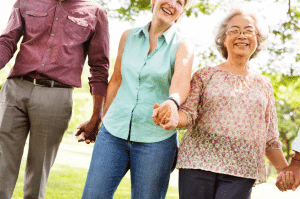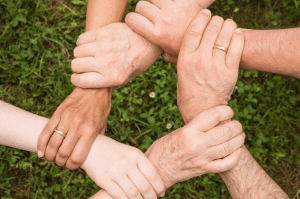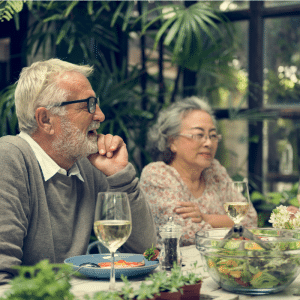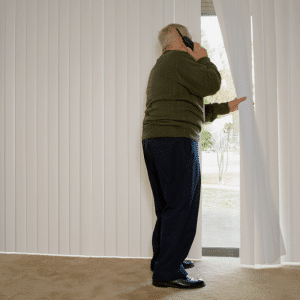Overcoming Loneliness
Loneliness is an evasive thing. People have been studying it for years, especially in elderly adults who seem prone to sadness and isolation. But, those studies have contradictory data. Some of them include statistics for people who “feel isolated” while others only study data from people who have been so lonely and depressed that they’ve opted for medical help. Because of all of this conflicting data, we don’t really know as much about the causes of loneliness as we’d like. We do, however, know more than we used to. There are certain consistencies in the data that help us narrow down some factors of loneliness.
Moving to a new place and living there for less than a year appears to be a catalyst for loneliness, especially in older people. This is most likely due to changing relationships. If a senior citizen moves, they’ll lose relationships that they may not have even recognized as important to them. They’ll no longer chat with the postal worker or the same grocery store attendants that they used to. They may not be able to invite the neighborhood boy that mows their lawn for a lemonade. Over time, they’ll gain other social connections that are similar, but immediately after a move, those changes can add up to an unoccupied space that others used to fill for them. It will take some intentionality after a move to form new relationships but establishing them is important for all involved.
Being involved in a church or another place where you can volunteer also seems to have larger impacts on the elderly. Perhaps because the connections formed there can give you some commonality of purpose and a desire to help others, involvement in these types of things, keeps people from being lonely. Knowing that you are contributing to society and that your input is needed and appreciated can do a great deal to stave off loneliness and depression. Those who choose not to be involved in these have higher rates of loneliness. Find out small ways to get involved in an activity that interests you, but this also helps others. It will be beneficial for the organization and for you!
Hobbies are another option for pushing off loneliness. The data is not conclusive on why hobbies can help, but it seems reasonable enough to say that if you have a hobby that you’re passionate about, you’re probably a bit more interesting to talk to. If you find someone that is interested in the same thing, you can connect with them on a deeper level of communication than just the weather. Even if the other person is not interested in exactly the same thing, they’ll understand your passion and your interaction will be livelier. You may also learn about what they are passionate about!
Loneliness can have huge and lasting impacts on our health. It is said to be just as damaging as smoking 15 cigarettes a day! It can lower your immune system’s ability to fight. It can also cause you to be pushed to the outside of social networks with others who are lonely. It is a strange conundrum that if you are feeling lonely, people tend to push you further away. This may be because your loneliness makes them feel more lonely, in turn. But all of these things are based upon people’s feelings & perceptions of their situations. If you can change those feelings and perceptions, you can change being lonely.
A recent study in the UK watched people on public transport. Those who initiated conversations with strangers were reported as less lonely. Those who only talked if someone else initiated conversation were more lonely and those who refused to interact with strangers were the most lonely. They then studied the same people and asked those who were not generally comfortable with initiating conversation to begin doing that. It is a simple and seemingly inconsequential change for someone to make, but it had huge impacts on their feelings afterward. They felt generally more positive and less lonely!
You may be feeling lonely and isolated, but that does not mean you have to become an extreme extrovert to overcome those feelings. Sometimes it is the small, daily acts that can have the largest impact over the course of months of our lives! Initiate conversation. Get a hobby. Start volunteering. Recognize the loneliness dissipate.








 I don't have the answers for ensuring that we don't lose connection from one another. It does begin with us, though. We can start by setting aside 30 minutes & calling to schedule a visit with someone we love. Visit an elderly friend or relative & bring them a snack & listen to their stories from long ago. If you're unable to visit, take time to make a call. Everyone talks about the busyness of life, yet many of those same people are on social media often, or know all about the latest episodes of their favorite television shows. If we have time for those less important endeavors, perhaps we do have the ability to make time for more important times of connection. It does require something from us, but the rewards far outweigh the sacrifice.
I don't have the answers for ensuring that we don't lose connection from one another. It does begin with us, though. We can start by setting aside 30 minutes & calling to schedule a visit with someone we love. Visit an elderly friend or relative & bring them a snack & listen to their stories from long ago. If you're unable to visit, take time to make a call. Everyone talks about the busyness of life, yet many of those same people are on social media often, or know all about the latest episodes of their favorite television shows. If we have time for those less important endeavors, perhaps we do have the ability to make time for more important times of connection. It does require something from us, but the rewards far outweigh the sacrifice. How often have you heard someone who is older comment about their difficulty in
How often have you heard someone who is older comment about their difficulty in  Finally, if you have a younger friend who visits or calls regularly, be sure to let them know that you appreciate them & their time. Encourage them to take times to disconnect from the hectic communication forms that are prevalent in today's world & learn how to engage more fully with the people they are with. Everyone can learn from previous generations & while we need to learn more about the technology of today's world & the communication that goes with it, there are also a few things that we can teach others about the closeness that comes from real communication.
Finally, if you have a younger friend who visits or calls regularly, be sure to let them know that you appreciate them & their time. Encourage them to take times to disconnect from the hectic communication forms that are prevalent in today's world & learn how to engage more fully with the people they are with. Everyone can learn from previous generations & while we need to learn more about the technology of today's world & the communication that goes with it, there are also a few things that we can teach others about the closeness that comes from real communication.  Loneliness is a very real problem for people of all ages, but it seems to prey greatly on those of advancing years. It can cause all kinds of issues, from undue stress, to depression & feelings of worthlessness. While all of us naturally will have times in our lives that are more lonely than others, we need not just go with the flow if the time period is becoming extended. There are things we can do to fight it off & lighten the heaviness created by it.
Loneliness is a very real problem for people of all ages, but it seems to prey greatly on those of advancing years. It can cause all kinds of issues, from undue stress, to depression & feelings of worthlessness. While all of us naturally will have times in our lives that are more lonely than others, we need not just go with the flow if the time period is becoming extended. There are things we can do to fight it off & lighten the heaviness created by it. Consider music. Whether it's playing an instrument, singing or simply listening to & learning music, this can be a very worthwhile aid in combating loneliness. Music has the ability to change emotion. It can lighten our darker moods or dampen our light moods. If you have a talent with an instrument, consider passing that on to a student or two. I knew an older woman of 92 who was still giving lessons to a couple of children a week, even though she had early stages of #dementia. She may not have had the lessons laid out consecutively each week, but the students were still learning & growing, not just from the piano that she taught, but also greater lessons about what it means to care for someone going through the frightening changes of old age. If you do not know how to play an instrument, simply play music. It does not matter the genre. Try to listen to a number of works by a certain composer. See if you can identify their songs by only hearing them, even if you do not see who wrote it. Try listening to music from different generations & get a feel for the music that stirred them. Then bring it up in conversation when you meet someone from that generation. They may be very surprised that you know the groups that were popular, and it may be an opening into more meaningful conversations.
Consider music. Whether it's playing an instrument, singing or simply listening to & learning music, this can be a very worthwhile aid in combating loneliness. Music has the ability to change emotion. It can lighten our darker moods or dampen our light moods. If you have a talent with an instrument, consider passing that on to a student or two. I knew an older woman of 92 who was still giving lessons to a couple of children a week, even though she had early stages of #dementia. She may not have had the lessons laid out consecutively each week, but the students were still learning & growing, not just from the piano that she taught, but also greater lessons about what it means to care for someone going through the frightening changes of old age. If you do not know how to play an instrument, simply play music. It does not matter the genre. Try to listen to a number of works by a certain composer. See if you can identify their songs by only hearing them, even if you do not see who wrote it. Try listening to music from different generations & get a feel for the music that stirred them. Then bring it up in conversation when you meet someone from that generation. They may be very surprised that you know the groups that were popular, and it may be an opening into more meaningful conversations.